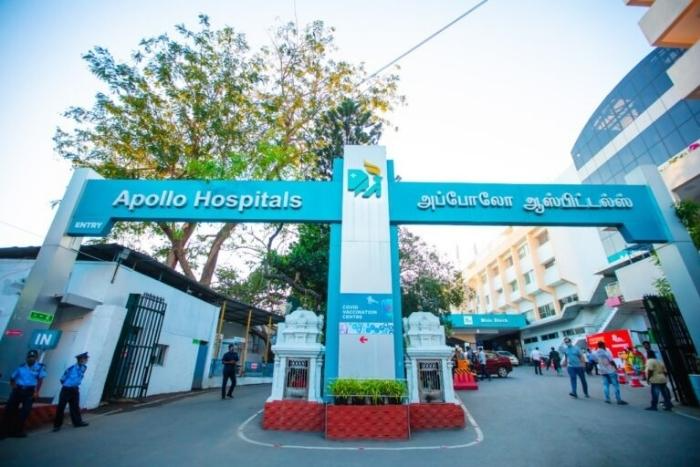Urology
Penile Cancer Treatment
Penile Cancer
Find the best penile cancer treatment in India for international patients. Access advanced care, expert doctors, and affordable options with GetWellGo.
What is Penile Cancer?
Penile cancer is a relatively uncommon cancer that develops in the outer layer of skin or in the tissues of the penis. It often affects the cells of the penis and if not treated can actually grow and expand.
Types of Penile Cancer
Squamous Cell Carcinoma (SCC):
- The type which is most frequently observed with incidence greater than 90%.
- Commonly occurs in glans penis or foreskin, but may be anywhere on the male genitalia.
Adenocarcinoma:
-
Uncommon; develops at sweat glands in the skin on penis particularly in the glans penis.
Basal Cell Carcinoma:
-
Also rare and slower growing.
Melanoma:
-
A variant that originates from the melanocytes or pigment producing cells.
Sarcoma:
-
A type so rare that it starts in the connective tissues of the erectile organ known as the penis.
Need for Penile Cancer Treatment
The situation, which requires treatment with penile cancer, can develop due to the various factors connected with this condition, such as potential for cancer to progress, create further complications, and otherwise affect a man’s health. Prompt diagnosis and intervention increases patient’s longevity and strength of life. Here’s why treatment is essential:
- To Remove Cancer and Prevent Spread
- To Preserve Penis Function and Appearance
- To Alleviate Symptoms
- To Prevent Life-Threatening Complications
- To Address Psychological and Emotional Well-Being
Penile Cancer Symptoms
The symptoms of penile cancer can vary depending on the stage and type of cancer. It’s especially important to detect them as early as possible, and the goal is to pay attention to certain changes and turn to doctors if something does not look right.
- Lumps or Growths
- Skin Changes
- Sores or Lesions
- Foul-Smelling Discharge
- Swelling
- Pain or Discomfort
- Bleeding
- Difficulty Retracting the Foreskin
Risk Factors of Penile Cancer Treatment
Penile cancer treatment is generally considered to be possible, it must be understood that any treatment comes with its own set of benefits and downsides. The comparative risks depend on the nature of the treatment – surgery, radiation or chemotherapy, as well as the stage of cancer. Here are the primary risk factors and potential complications associated with penile cancer treatment:
- Infection
- Bleeding
- Urethral Narrowing
- Swelling
- Loss of Sexual Function
- Changes in Urination
- Nerve Damage
- Skin Damage
- Erectile Dysfunction
- Urinary Problems
- Fatigue
- Chronic Pain
- Nausea and Vomiting
- Hair Loss
Causes of Penile Cancer
It is still not clear what exactly leads to penile cancer, but it results from a mutation of the cells forming the penis. They lead to uncontrolled cell proliferation resulting in the formation of a growth, a tumor that can penetrate adjacent tissue or metastasize to other sites. Below are the key factors believed to contribute to penile cancer:
- HPV Infection
- Poor Genital Hygiene
- Tight Foreskin
- Smoking
- Chronic Inflammation or Infection
- UV Radiation
Facilities and Services Offered for International Patients for Penile Cancer Treatment in India
Penile cancer receives a lot of attention and there is available specialized services that offer international patients full range of medical services and support needed throughout the treatment process. Leading cancer centers offer the following services to ensure a seamless experience for international patients:
- Specialized Treatment Options
- Multidisciplinary Teams
- Language Assistance
- Travel and Accommodation Support
- Advanced Facilities
- Visa Assistance
Penile Cancer Stages
Penile cancer stages are determined using the TNM staging system (Tumor, Nodes, and Metastasis), which evaluates:
- Tumor (T): T characteristics: the size and the extent of the primary tumor.
- Nodes (N): Lymph node involvement in an aggressive manner.
- Metastasis (M): Spread to distant organs.
Those are ordinal stages from 0 to IV according to the severity of the condition. Here's an overview:
Stage 0
- Cancer cells are only present in the outer layer of the skin of the penis known as epithelium.
- This is therefore a pre malignant stage and has not spread to deeper structures.
Stage 1
- Cancer has spread to the connective tissue just beneath the epidermis without involving lymph nodes or vessels.
- The tumor is low-grade (slow growing and is not as invasive as other tumors).
Stage 2
- Cancer has penetrated deeper into the penis and has reached the corpus spongiosum or corpus cavernosum parts of the penis, the erectile tissues.
- May possibly be associated with invasion of lymphovasculature but does not spread to lymph nodes.
- High-grade (higher risk of growth or spread)
Stage 3
- Stage IIIA: It has spread to one or two inguinal lymph nodes (groin).
- Stage IIIB: Metastasis to inguinal lymph nodes is present and there are at least two positive nodes.
- The tumor may invade more central penile structures, including erectile bodies.
Stage 4
Cancer has spread extensively:
- To other structures near it, say the prostate, or other adjacent organs.
- To pelvic lymph nodes.
- To other related or distant organs such as the lung, liver and other related organs.
This is put in the bracket of terminal stage cancer with whole lot of spread.
Treatment for Penile Cancer
Surgery
Surgery is the primary and possibly the best treatment for penile cancer. The type, size and location of the tumor in question dictates which type of surgery will be administered.
A. Circumcision
- Appropriate in cases of cancer that has not spread beyond the foreskin.
- The removal of the foreskin together with tumor.
B. Mohs Micrographic Surgery
- These layers of cancerous tissue are then peeled off, and inspected under a microscope until there are no cancer cells.
- Surgically saves as much healthy tissue as possible.
C. Partial Penectomy
- A surgical operation that usually involves the amputation of part of the penis which contains the tumor.
- Keeps some erectile function for urination and, in some instances, sexual relations.
D. Total Penectomy
- Resections the entire penis in cases of bigger or more malignant growths.
- A new exit point for urinating is performed where the perineal urethrostomy is made.
E. Lymph Node Dissection
- Disables the removal of lymph nodes in the groin or pelvis if the cancer has spread.
- May require sentinel lymph node biopsy for cancer metastasis.
Radiation Therapy
A type of radiation therapy that utilises high energy rays to kill cancer cells and is mostly used in a more extensive reduction of cancers than surgery or along with it.
Chemotherapy
Uses medications in order to eliminate cancer cells or prevent them from dividing. There is a topical, oral, or IV preparation for it.
Targeted Therapy
A type of drugs that act on certain proteins or genes and enhance the inhibition of cancer cells. This is often appropriate for stage three or four melanoma or when standard melanoma treatments do not work well.
Immunotherapy
Strengthen the immune system and enhance the defensive ability of various cancer cells. It is still under trial for use in penis cancer treatment.
Best Hospitals for Treating Penile Cancer
- Artemis Hospital, Gurgaon
- Medanta-The Medicity, Gurgaon
- Fortis Memorial Research Institute, Gurgaon
- Max Hospital, Saket
- BLK-Max Super Speciality Hospital, New Delhi
Best Doctors for Treating Penile Cancer
- Dr. Rajiv Yadav
- Dr. Gagan Gautam
- Dr. Vedant Kabra
- Dr. Amit Goel
- Dr. Surender Kumar Dabas
Why Choose GetWellGo for Penile Cancer Treatment?
While specific information about GetWellGo is penile cancer treatment services is not available in the provided search results, here are some general factors to consider when choosing a healthcare provider for penile cancer treatment:
- Experienced Oncologists and Surgeons
- Advanced Surgical Techniques
- Language Support
- Travel Arrangements
- Accommodation Assistance
- Visa Assistance
TREATMENT-RELATED QUESTIONS
GetWellGo will provide you end-to-end guidance and assistance and that will include finding relevant and the best doctors for you in India.
A relationship manager from GetWellGo will be assigned to you who will prepare your case, share with multiple doctors and hospitals and get back to you with a treatment plan, cost of treatment and other useful information. The relationship manager will take care of all details related to your visit and successful return & recovery.
Yes, if you wish GetWellGo can assist you in getting your appointments fixed with multiple doctors and hospitals, which will assist you in getting the second opinion and will help you in cost comparison as well.
Yes, our professional medical team will help you in getting the estimated cost for the treatment. The cost as you may be aware depends on the medical condition, the choice of treatment, the type of room opted for etc. All your medical history and essential treatment details would be analyzed by the team of experts in the hospitals. They will also provide you with the various types of rooms/accommodation packages available and you have to make the selection. Charges are likely to vary by the type of room you take.
You have to check with your health insurance provider for the details.
The price that you get from GetWellGo is directly from the hospital, it is also discounted and lowest possible in most cases. We help you in getting the best price possible.
No, we don't charge patients for any service or convenience fee. All healthcare services GetWellGo provide are free of cost.
Top Doctors for Urology
Top Hospitals for Urology
Contact Us Now!
Fill the form below to get in touch with our experts.







